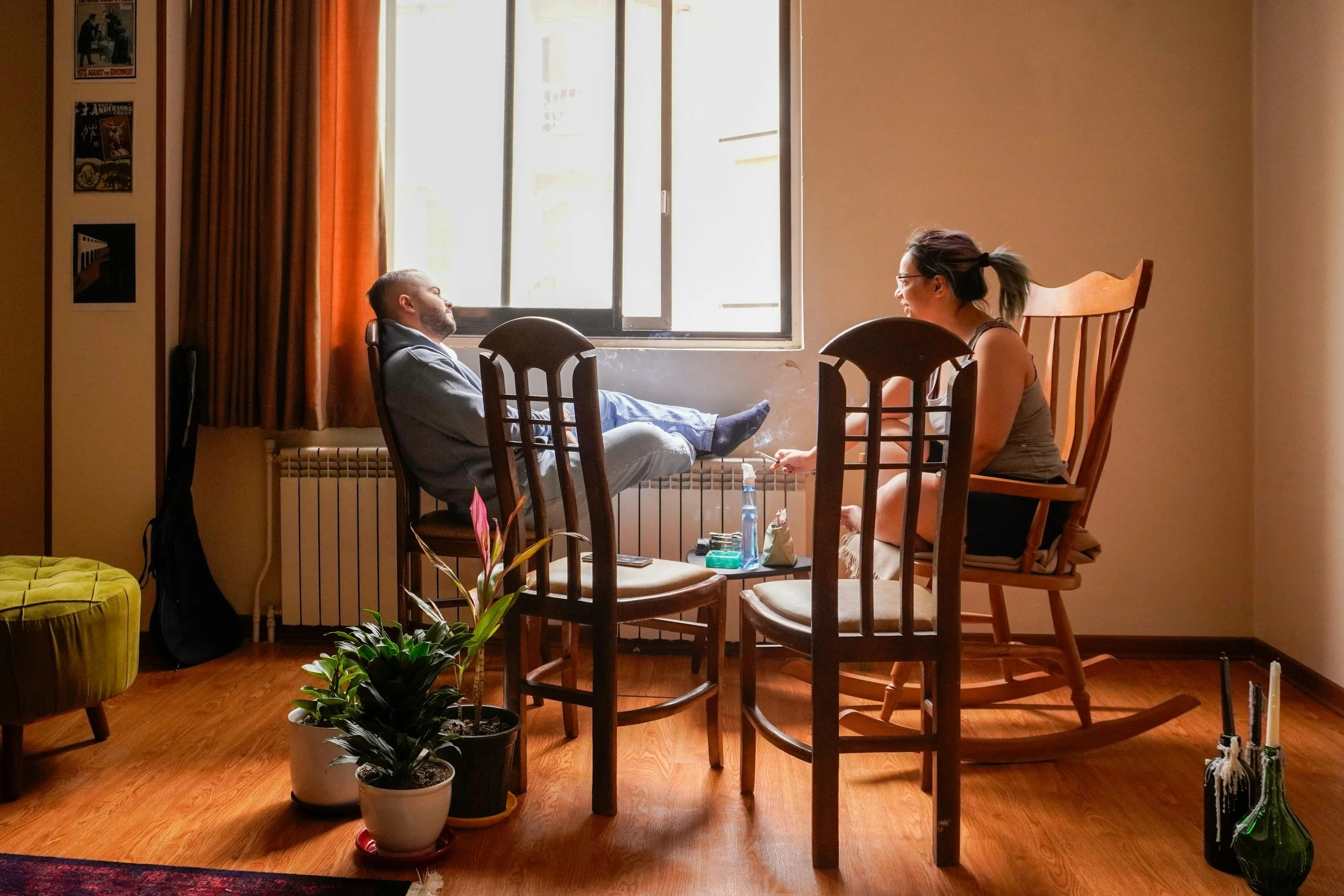Why It’s Hard to Walk Away from the Covert Narcissist
—When you keep trying to make sense of someone who keeps hurting you.
There’s a kind of pain that doesn’t look dramatic from the outside. No screaming, no big betrayals — just this slow erosion of who you are. You start doubting your memory, your reactions, your gut. You tell yourself they didn’t mean it, that maybe you’re just being sensitive. But deep down, you know something’s off. You just can’t figure out why it still hurts so much to even think about walking away.
The truth is:They don’t have to yell to make you question every-little-thing.
A slight variation in the tone of their voice, a facial expression they made, a sigh, or something you let slip that might come back to bite you later. You get so accustomed to managing them, that you forget to breathe.
It’s like they’re constantly sculpting you from memory, but it’s never a version you recognize.
You start second-guessing it all.
You catch yourself wondering why this feels so hard, even though sometimes it feels so clear what you should do. You keep trying to find the line between giving someone grace and losing yourself in the process.
Was that really that bad? Am I overreacting? Is it just me?
But underneath it all, it often comes back to two questions you keep asking yourself:
Do they actually know what they’re doing, and how much they’re hurting me?
And can they actually change? Or am I doomed to live like this forever?
Let’s start with the first one.
Do covert narcissists know they’re hurting you?
Sometimes. And sometimes they act like they don’t.
Think back to a time you told them you were hurt by something they said or did.
Did they pause? Did they actually apologize — not the half version, but the kind that comes with reflection and ownership?
Or did they brush it off, pretend it never happened, make excuses, or flip it back on you until somehow you were the one apologizing?
It’s easy to want to keep giving them the benefit of the doubt — especially when the excuse sounds reasonable enough.
“I was tired.” “I wasn’t feeling well.” “I didn’t eat all day.”
Sure. But being tired or stressed doesn’t give someone a free pass to treat you like garbage. Everyone has bad days. Not everyone takes it out on the people they love.
At the end of the day, not knowing better doesn’t undo the damage.
Ignorance doesn’t excuse accountability.
Can they actually change?
That’s the next question that always comes up, right? Can they actually change?
Here’s the hard truth — people can change. But only if they want to.
The real test is whether they choose it for themselves or if it only ever happens because you’re the one putting it all together. Reminding them, talking through all their feelings, dragging them to therapy, towards sobriety, or to couples counselling.
You can spend years in that loop. And maybe you already have.
The harder question isn’t can they change — it’s how long can *you* live with the cost of them not changing?
When you can’t tell what’s real anymore
If you’ve been stuck in the “I don’t know what’s what” spiral, it makes sense. You’ve been gaslit, worn down, second-guessed into the ground. Of course it feels impossible to trust yourself.
Here’s why it can be so hard to know what’s real in covert-narcissist relationships:
Why You Doubt Yourself
1. It’s not all in your head
You replay conversations, picking them apart, wondering if you’re being dramatic or just making things up. That’s what emotional abuse does — it eats away at your confidence until you can’t tell what’s real anymore.
2. But what if he (she, they) is actually a good person?
You’ve seen the good parts — the jokes, the tenderness, the moments that make you think, this is who he really is. Those flashes keep you hooked. On the good days, it’s easy to tell yourself the bad ones don’t matter— or that maybe they’re your fault.
3. You’re scared of being judged
You want people to take you seriously. But sometimes the hardest part isn’t getting them to believe you — it’s believing yourself.
Why You Stay
Leaving isn’t simple. There are many reasons you hang on — even if you know it’s breaking you.
4. You wish the signs were more obvious
As awful as it sounds, it might feel easier if there were bruises. Saying “he hit me” makes sense to people. Trying to explain the slow gut punch of criticisms, blame, and self-erasure feels impossible.
5. People don’t see what you see
From the outside, he might look sad, tired, or misunderstood. People make excuses for him — and you do too. You’re not the kind of person who leaves someone behind, and walking away feels selfish, even when it’s about your own survival.
6. Your empathy keeps you tethered
You care. That’s who you are. You pick up the phone when someone’s in crisis, even when you’re running on fumes. You forgive before they ask. You give more than you have because you can’t stand to watch someone fall apart.
But caring that much for someone who keeps hurting you isn’t love — it’s self-erasure.
How to Start Trusting Yourself Again
When you’ve spent years walking on eggshells, trusting yourself doesn’t come back all at once. It’s something you rebuild, one small breath at a time.
Start by noticing the tiny moments when your gut whispers something like — this feels off, I don’t like this, I need a minute.
Don’t rush trying to justify or explain it right away. Just notice it for a second. Your instincts are still there, it’s the connection that was frayed.
And if you still feel unsure, it doesn’t mean you’ve failed to keep track of what’s right or what’s wrong. It just means you’ve learned to survive by doubting what you felt was real. It takes time to unlearn that.
You don’t have to do it alone, either.
When Therapy Might Help
I know it’s hard to picture yourself as the one who needs support. You’re used to being the strong one — the one people lean on. But you’re allowed to have someone in your corner too.
You don’t need to have it all figured out first. Sometimes just talking it through with someone safe — a friend, a coworker, a family member — can start to lift some of the fog.
If you’re in Ontario and trying to untangle yourself from a covert narcissist relationship, we have therapists who get it. You don’t have to carry it alone.


